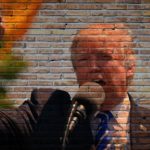 Research from the University of Nebraska–Lincoln College of Business suggests that political uncertainty, often seen as a drag on economic stability, may have an unexpected upside. The study finds that firms tend to boost research and development (R&D) spending during periods of high political uncertainty, particularly in tight gubernatorial elections.
Research from the University of Nebraska–Lincoln College of Business suggests that political uncertainty, often seen as a drag on economic stability, may have an unexpected upside. The study finds that firms tend to boost research and development (R&D) spending during periods of high political uncertainty, particularly in tight gubernatorial elections.
R&D serves as a strategic tool for growth in uncertain times. Companies that invest in innovation when the future is unclear gain flexibility—they can expand further if conditions improve, but if they hold back, they risk falling behind competitors. This challenges previous studies that focus on the negative effects of political uncertainty on corporate decisions like capital expenditures and mergers.
Driving growth
R&D is a key driver of long-term economic growth, meaning political uncertainty may have a surprising role in fostering innovation. To measure uncertainty, researchers examined gubernatorial elections where the winning margin was less than 5%. Since these elections happen every four years and are beyond a firm’s control, the study was able to establish a causal link between uncertainty and R&D investment.
The researchers illustrate this with an example: A company considering an initial R&D investment in solar panels faces uncertainty because two gubernatorial candidates have opposing views on green technology incentives. In a stable environment, a $9 million R&D investment might have a theoretical value of $7.26 million, making it unappealing. But with increased uncertainty—such as an election that could shift environmental policy—the value jumps to $11.23 million, making the investment worthwhile.
Firms in politically sensitive and high-tech industries are the most likely to increase R&D spending in uncertain times. Instead of freezing investments, they use uncertainty as an opportunity to prepare for different future scenarios.
Widespread implications
The study carries implications for corporate managers and policymakers alike. If uncertainty sometimes encourages investment, policymakers may have less reason to worry. Warnings about the economic damage of prolonged policy debates should be weighed carefully, considering that some types of investment may actually benefit.
By seeing uncertainty as a potential driver of innovation rather than just a risk, businesses can stay competitive regardless of shifting political landscapes.